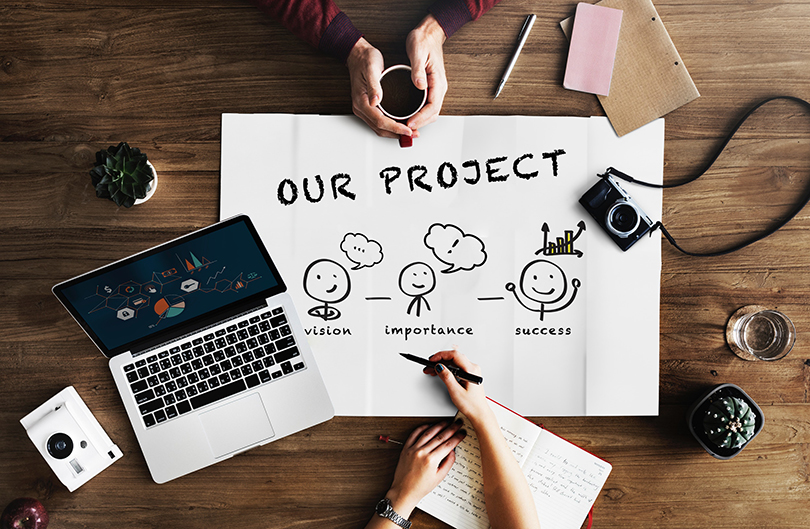Japanese culture
A while ago, I met a young Malaysian man at an event who said, “Japanese people rarely discuss their way of life.” And yes, that is true. As mentioned, I rarely actively share or discuss my “IKIGAI (purpose of life)” with others.
What does this mean?
In Japan, we rarely talk directly to others about the meaning of our own lives or purpose.
That is why it would be highly unusual for us to approach a friend, colleague, or even someone we just met and say, “Hey, let’s talk about our IKIGAI.”
If you inquired about this with a Japanese person you might get a surprised reaction.
We rarely discuss our values or future and are unlikely to share them in our daily conversations. Instead, we ask each other to gauge our thoughts and feelings by saying, “I guess this is what you think….”
As in other places around the world, people in Japan used the global pandemic as an opportunity to adjust how they work, change their housing, and reconsider their way of life. While being instructed to stay at home, I had ample time to think about my friendships, work, family, hobbies, and future life.
I avoided changing my mind drastically, but I did become more aware of what was important to me and my values.
However, in alignment with Japanese culture, I did this self-reflection on my own, rather than sitting on the sofa with my husband and talking about my life and goals, or when in conversations with friends. If they ask me a question about these goals, I am willing to answer, but I rarely bring it up as a topic of discussion myself.
Your IKIGAI can be something simple.
For some people, their IKIGAI is to keep their partner smiling; for others, their happiness is to make their children happy; for others, their reason for living is a daily walk with their dog.
IKIGAI’s purpose in life is spiritual and differs from person to person.
Some people have IKIGAI, and others do not.
Of course, it is okay if you do not have it.
To be more specific, I often get asked to coach people about their problems. Many people tell me stories that they avoid telling anyone else. Some want problem-solving, and others want to be listened to carefully.
.jpg)
It depends on the person, but there are moments when a crying face turns into a smile. When I am in contact with a coachee via text, all of a sudden, the emojis change from a crying symbol to a smile.
And then there is the moment when they say, “Thank you. I’m really glad I met you.” I often have people say that. This is the moment when my existence is proven.
These words tell me that I am just right as I am.
I avoid trying to change anyone as it is the other person themself who changes. They are the ones who have come up with the answer.
All I have to do is listen carefully to others, lay out some options for solving the problem, communicate back, and tell them that I am on your side.
In fact, it is not often that they want my opinion; they only want to be listened to. So, sometimes, I may not give my opinion and instead watch because, for the most part, the other person already has the answer in their heart.
IKIGAI and Resilience
The words “I’m glad I met you” are very inspiring.
There were times I felt discouraged and dejected, helpless in times of great stress, and unable to cope due to unforeseen circumstances (systems, rules, and such), such as when I failed entrance or certification exams. I am aware that, in the end, it is experience, and not scores, that show my worth, but every time I fail in exams, I doubt myself as I feel that my efforts have not quite reached my full potential.
At such times, my IKIGAI sustains me:
When I am feeling discouraged, my “IKIGAI” speaks to my heart.
And it encourages me:
“Remember me. Believe in yourself and try again. You can do it.”
“You want to make someone smile, don’t you?”
And then I stand up again the next day.
Remembering the words, “I am glad I met you.”
To give someone encouragement.
But if you have it, you will feel energized to “wake up” to make someone else smile.
Insights from an IKIGAI Survey of 100 People in 2020
Coincidentally, I was thinking about the concept of IKIGAI at the beginning of the global pandemic. To learn more about IKIGAI, I surveyed 100 people around me during my stay-home term about their IKIGAI. It was in November 2020.
I am not a researcher or an expert on IKIGAI; however, as a Japanese person born and raised in Japan, I am very interested in IKIGAI.
It was a very informal survey. I asked friends, co-workers, people I knew from work, community members, my mother’s friends, people from the haiku club, my siblings, my husband, my children, and people of all ages. My two children (aged 10 and 11 at the time) also participated.
Here are the results:
- Demographics: 32% were in their thirties, 29% were in their forties, 19% were in their sixties, and 78% were female, and 22% male
- 60% said they have anything that can be called IKIGAI, 4% replied not yet, 10% said it’s difficult
- 77% said they feel their IKIGAI in their work or daily life
- 61% of the participants said their IKIGAI would brighten their daily life, and only 23% said not so much
- 44% said their IKIGAI is related to what they like to do, 6% said that it is related to what they are good at, and 10% said it is related to both.
What do the IKIGAI of others look like?
I also asked this question in the survey and received 82 responses about it. I categorized the responses into Personal, Family, Work, Social, and Environment:
IKIGAI related to:
- Supporting my favorite singer
- To be recognized by others at work and in my private life
- Live performance (music), watching sports
- Being alive itself
- Study
- Health
- To have a healthy mind and to appreciate each day while sharing the feelings of others
- To be able to live each day in peace
- To have time to focus on what you love to do
- To have time to focus on what you love to do
- To do what you think is best for you and feel the results as much as possible
- Calligraphy
- To be able to meet and support various people while doing what I love to create
- Crafts
- Seeing a play, listening to music, or seeing a live performance or exhibition at a museum, etc.
- To enjoy everyday life.
IKIGAI related to:
- To make myself and others physically and mentally fit and smile through my yoga practice
- Work
- To be able to work at what I love and am good at
- To work and cook lunch as a member of a self-employed family
- Working
- To have a job at any age
- To use my sensibility in photography, video production, etc.
- To tell people about my favorite vegetables and fruits. Especially to children.
- To interact and talk with customers
- To create something and have it benefit someone else and accomplish a task













Replies to This Discussion